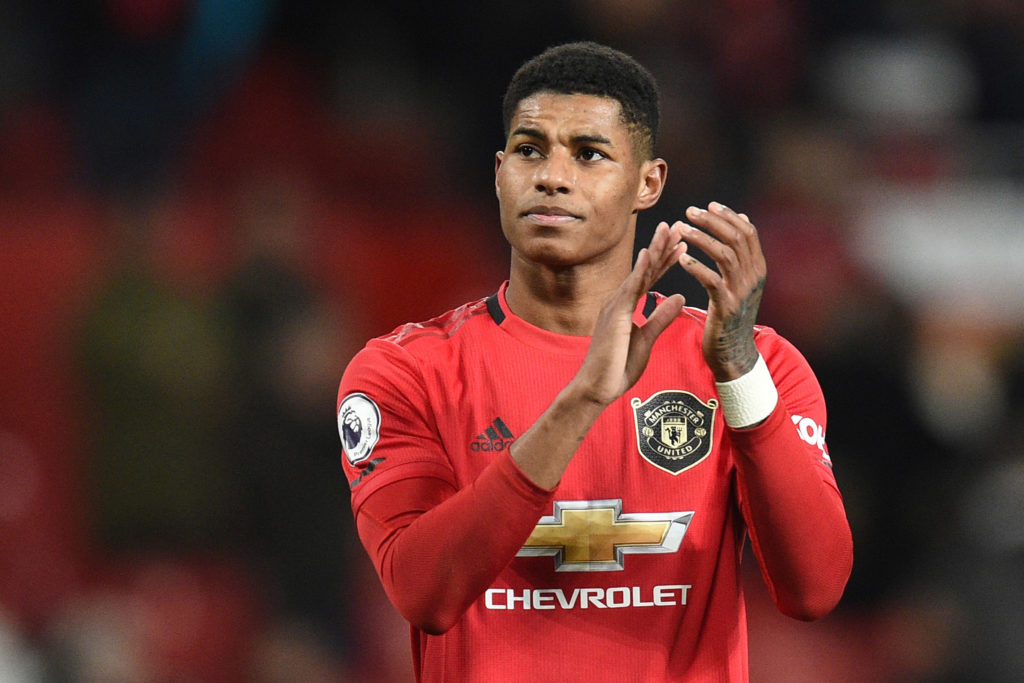
By Aidan Thompson,
School of Education, University of Birmingham.
I am on my fourth edit of this blog, such has been the changing nature of the story of Marcus Rashford challenging the government to improve its provision of free school meals for children from underprivileged and low socio-economic backgrounds. I began writing this just after Parliament voted down the Opposition Day vote to extend free school meal provision for vulnerable young people. After some high-profile campaigning, led by Rashford, the government u-turned and has now rolled out a package of support for children and families during the forthcoming Christmas school holiday period.
When the initial motion in parliament was voted down, largely by Conservative MPs, there were a few outspoken MPs who criticised Rashford for apparent virtue signalling. Ben Bradley and Brendan Clarke-Smith, for example, used both Parliament and social media to vocally criticise Rashford, and sought to shift the responsibility for child poverty away from the state and onto parents, many of whom have had their already-difficult economic circumstances exaggerated by the 2020 coronavirus pandemic.
Having followed much of the debate on social media, in the mainstream media, and in Parliament, it was interesting to see the reaction to such criticisms and accusations from Members of Parliament. Some supported the accusations, as they did the Government’s initial decision not to provide holiday support to children. The criticisms of Rashford were that he, as a millionaire footballer, should give his own money to solve the problem, shouldn’t criticise Government and was only campaigning on the issue to draw attention to his own virtuousness.
There was, however, a much larger response against the accusations, with many members of the public taking to social media and other platforms in support of Rashford, in defence of him not as a virtue signaller, but simply as a person with a platform, recognising an injustice that he had himself suffered, and wanting to do good by those less fortunate.
The purpose of this blog is not to convey my personal opinion on the situation, but to attempt to evaluate the accusation of virtue signalling. Such accusations often arise when there is a polarisation of opinion on a matter generally relating to our moral actions or ethical behaviours. No one likes to be accused of being a bad, or immoral, person, or having sided on the ‘wrong’ side of a moral argument, so the simple defence is to signpost the other side’s virtuousness as a criticism. One is more interested in being seen as taking the moral position, rather than wanting the moral outcome.
Another way of evaluating the degree of virtue signalling involved in a debate is to consider what each side has to gain from making such accusations. Rashford has very little to gain personally from the campaigning that he has done to date. Yes, he has received an MBE for services to vulnerable young people – something he said he was ‘honoured and humbled’ to receive. However, it has no bearing on his contract with Manchester United, his place in the England national team, or the way in which he lives his life.
In this instance, it is difficult to support the accusation that Rashford was virtue signalling. Rashford’s own personal journey out of child poverty and benefitting from state-provided free school meals to using his platform as a Premier League footballer to fight social inequality is authentic. Indeed, as many pundits and commentators have reflected, it is precisely because of Rashford’s personal experience of social inequality that many have taken to him as a champion of this cause.
It is fair to say that it is not often that modern-day footballers use their platforms to tackle social issues in the way that Rashford has. That is not because footballers are not good people – many do countless hours of charity work a year – they just do not speak about it publicly. Each will have their own reasons for this, but the balloon of support for Rashford from most corners of society, including current and former players, pundits, journalists and MPs show Rashford to be exceptional in both senses of the word.
I am minded to end with a famous but anonymous quote; ‘when you stand for nothing, you fall for everything’. I had a version of this on my door during my undergraduate studies. The reason it is relevant, here, is that Rashford has stood for something. He has been clear, articulate and believable in his stance on supporting social equality for disadvantaged young people. In doing so, he has created real change that has positively impacted millions of people around the country. In sum, the charges that he was merely virtue signalling do not hold up.
The views and opinions expressed in this article are those of the author and do not necessarily reflect the official policy or position of the University of Birmingham.

Thank you for this piece. I too watched this play out; interested in the government’s stance on child poverty. As a social worker/social work educator, what interests me is the way select individuals in our communities can accumulate the power and capacity to influence at a national, political, government level. Social workers across the land were engaged in discussion about this issue, and other similar issues, but their voices (even collectively) didn’t reach the ears of policy makers and did not amount to anything close to social action (as far as I could see). There are all sorts of questions to ask about the cultural positioning of celebrity individuals “versus” professional collectives and their capacities to effect social change – lots of food for thought!